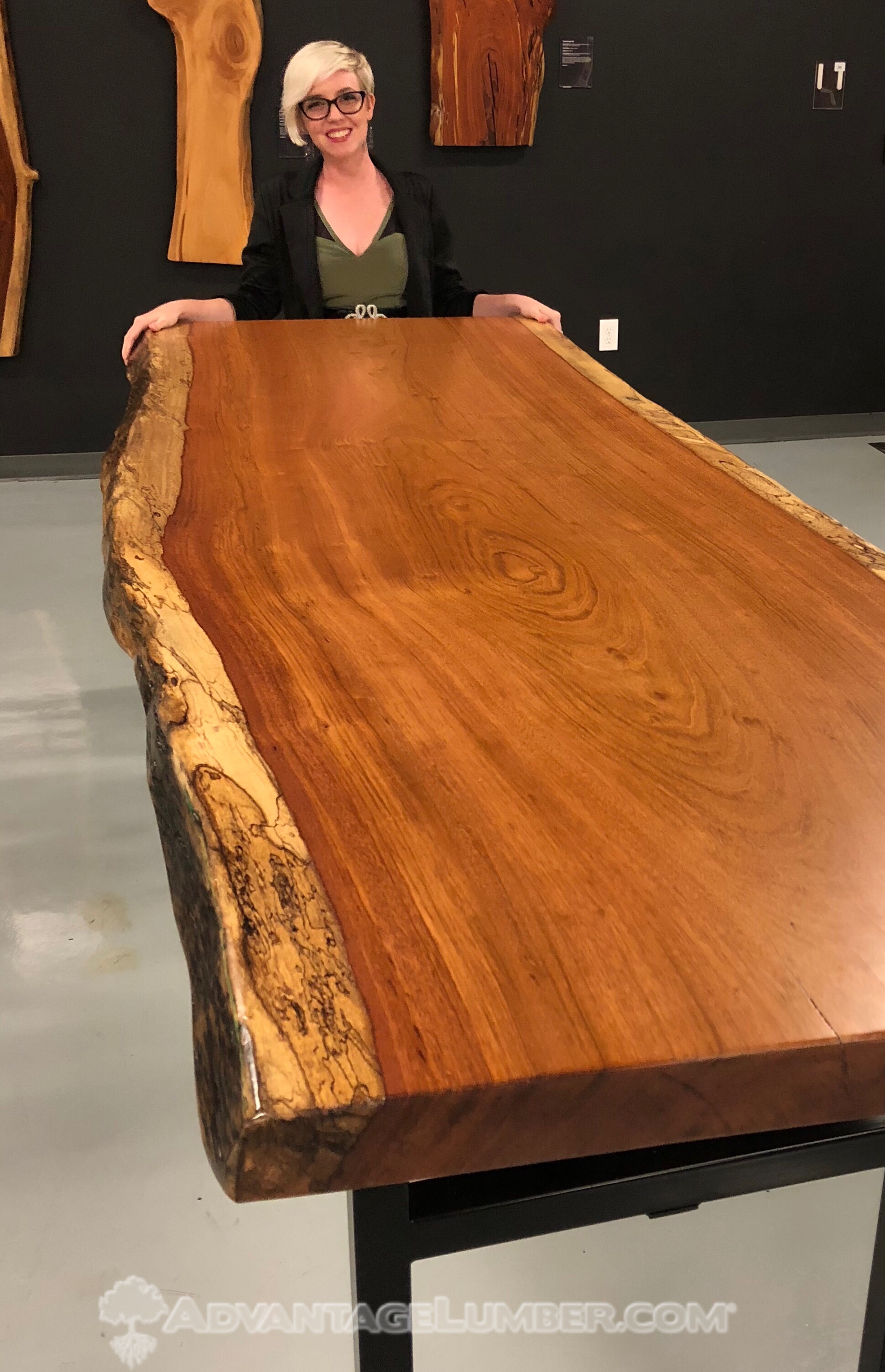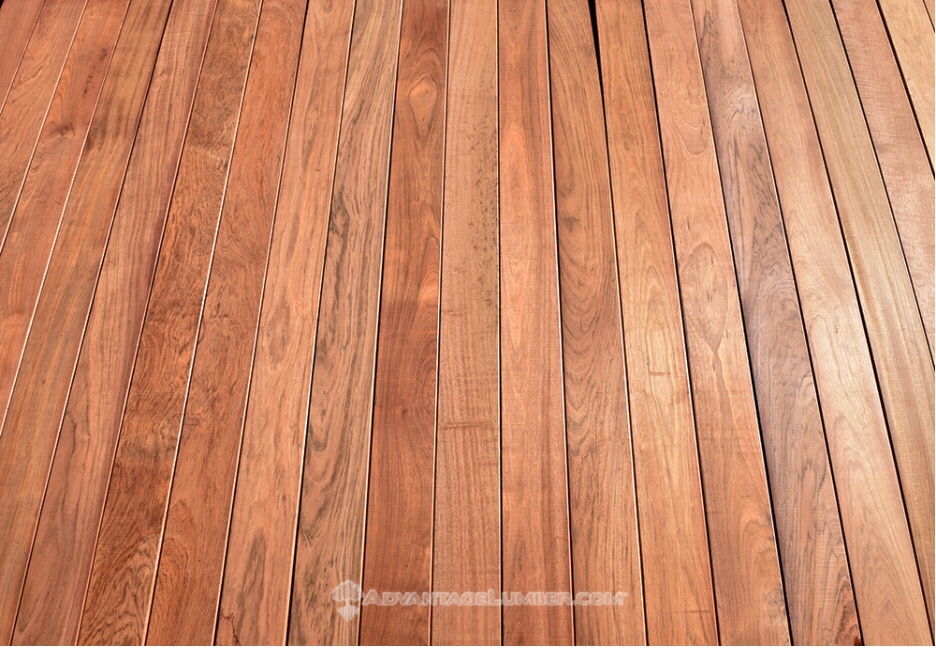
Jatoba –(Hymenaea Courbaril spp.)
Other common names include Brazilian Cherry, Locust, and Jut Vermehlo. Jatoba is a deep reddish brown in appearance and is available from our facilities as both FSC and Non-FSC certifications. Hard in density and somewhat hard to work, Jatoba is another wood which must be kiln-dried (KD). In traditional woodworking, Jatoba is a wood used for flooring and fine furniture. It is, however, a wood that could see more use as a decking product because of the stability and resistance to decay. We have jatoba available as decking, flooring, dimensional lumber, E4E, S4S, RS (Rough Sawn), deck tiles, and table slabs. The live edge table slabs in this species look amazing with a light contrasting sapwood along the outside edges.
Common Name: |
Jatoba, Brazilian Cherry |
Botanical Name: |
Hymenaea courbaril |
Indigenous to: |
Central America, southern Mexico, northern South America, and the West Indies |
Modulus of Rupture: |
22,510 lbf/in2 (155.2 MPa) |
Shrinkage: |
Radial: 4.2%, Tangential: 8.0%, Volumetric: 12.1%, T/R Ratio: 1.9 |
How is it dried: |
Info coming soon |
Is it dried quickly: |
Normal drying time Initial air drying under cover prior to kiln drying is recommended. Risks of cracks more or less important according to specific gravity. |
Stability: |
High Moderately Stable to Stable |
Exterior Wood Recommendation: |
Class 3 – not in ground contact, outside |
Fastening Method: |
Nailing / screwing: good but pre-drilling is necessary Gluing: Yes (for interior only) Note: Gluing must be done with care (very dense wood). |
Ecosystem impact: |
This wood species is not listed in the CITES Appendices, and is reported by the IUCN as being a species of least concern. |
Toxicity and allergic reactions: |
Although severe reactions are quite uncommon, Jatoba has been reported to cause skin irritation. |
Odor: |
No distinguishable odor |
Products we manufacture using this species: |
Info coming soon |
Other common uses: |
Cabinetwork (high class furniture)
Furniture or furniture components Sliced veneer Industrial or heavy flooring Flooring Stairs (inside) Wood frame house Exterior joinery Exterior panelling Interior panelling Tool handles (resilient woods) Turned goods Ship building (ribs) Vehicle or container flooring Musical instruments Arched goods Wood-ware Sculpture Moulding Cooperage |
Susceptibility to |
|
Dry Wood borers: |
Durable – sapwood demarcated (risk limited to sapwood) |
Fungi: |
Class 2-3 – durable to moderately durable |
Termites: |
Class M – moderately durable |
Treatability: |
Class 4 – not permeable |
Janka Hardness: |
|
More Product Information





